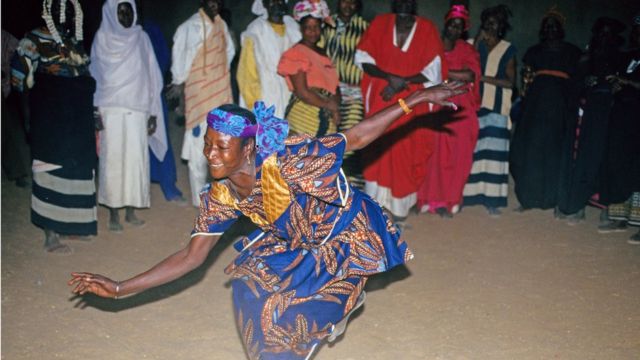Tashe: An age long Hausa culture facing extinction
It appears that Tashe, which is an age-long Hausa culture, is being phased out by civilisation and the advent of technology. This culture is practised during the Ramadan period and it entails young men and women as well as under-aged children wearing rags and going into houses to entertain inhabitants with melodies and drama and […]

It appears that Tashe, which is an age-long Hausa culture, is being phased out by civilisation and the advent of technology.
This culture is practised during the Ramadan period and it entails young men and women as well as under-aged children wearing rags and going into houses to entertain inhabitants with melodies and drama and get a token or grains in return.
- No partnership will resolve Nigeria’s security situation – UK
- Police dismiss three officers for extorting LASU student
It is usually started on the 10th of every Ramadan and lasts till the 20th of that month.
However, the culture was not a reserve for only children and young people as even elderly people uphold the culture but they perform it in a different way.
Unlike the young men, the elderly people usually do their tashe during the day and mostly in the market places, which fetches them a lot of money.
Our reporter observed that this annual practice is diminishing, particularly in the ancient city of Sokoto.
Malam Abdulmumini, a resident of Kofar Taramniya told Caliphate Trust that, out of the three groups of children he knew to be participating in the culture, only one engages in tashe now, which he attributes to civilisation.
“Elderly people and girls now abstain from the culture. In the past, you will see several groups of Yan Tashe along this road but you hardly see five groups now.
“In other areas that are predominately occupied by elites like government reserved areas (GRA) or quarters, this culture is not practiced,” he said
He recalled that, in those days, some of the groups started their own on the 8th of Ramadan and would continue doing it until around 20th, when it is just nine days to Sallah.
Another resident, Alhaji Kabiru Assada, said the emergence of technology also contributed to the decline in its practice because some of the children prefer playing games with their phones or online chat.
He also said many people thought the practice is uncivilised, which should be phased out, thus they do not allow their children to practice it.
The Director, Culture of the Waziri Juanidu History Bureau, Alhaji Bello Hamisu said that, this practice has been in Hausa culture for centuries. He added that the moment fasting begins, children will start preparing themselves for Tashe, describing it as a business for all segments of society.
He added that Tashe was so lucrative during their time, as they were getting money, grains and even goats.
“We would be going to houses drumming, singing and dancing and we were getting many things in return, including money, grains and animals.
“But this practice is being phased out by modernisation. And this is our problem. We don’t keep to our culture, like this one that is not promoting immorality,” he said
On the benefit derivable from Tashe, he said, there were both economic and cultural benefits.
“Some of the children make savings from the proceeds of Tashe, which they used in buying things for Sallah, especially things that their parents could not afford.
“And the drama and the songs were showcasing their talents and potentiality, which was telling the other world that our culture is very rich,” he said
He said people should be encouraging those practising it by donating money to them not chasing them away so as to sustain the culture.
